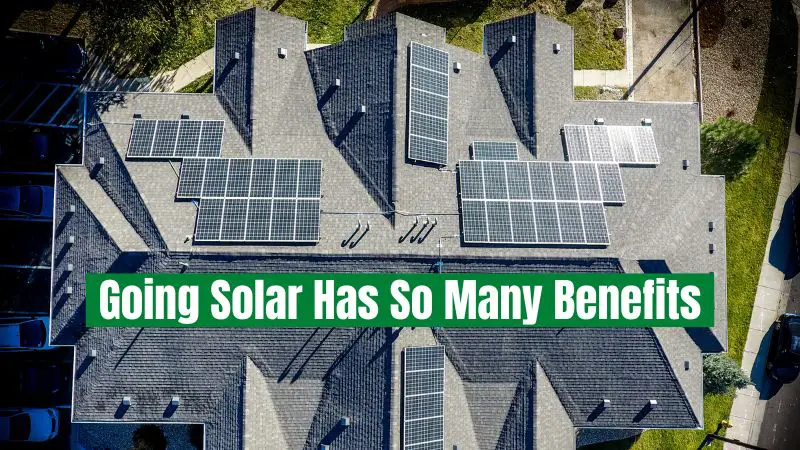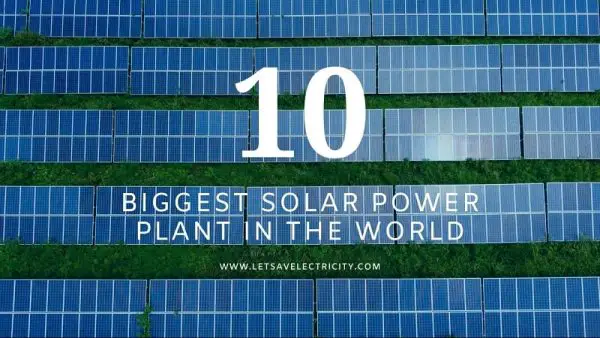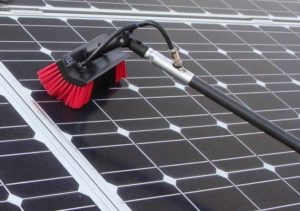The electricity cost is rising daily, and people are looking for alternate routes to curb these rising prices. Solar power is one such energy that not only is sustainable but is present in abundance. More and more people are switching to solar energy; however, if you are reluctant to make the change, then read on the following benefits of using solar energy, that we have rounded up using our high-speed CenturyLink Internet and they will surely change your mind!
If you are in a hurry here are the benefits going solar,
- Huge savings in electricity billl,
- Negligible maintenance cost,
- Use it to generate power or heat water,
- Reduced impact on electricity grid,
- Safeguard yourself from price volatility,
- Reduce your carbon footprint and save environment.
1. Energy Bills
If you are looking to make a huge dent in your electricity bills, solar is the way to do it. Shifting to solar panels will make you save on electricity. It is especially beneficial if you are in a small business, it can cover a large part of your energy bills. Not only that, you can export the surplus electricity produced to the grid through Smart Export Guarantee.
A solar electric system offers an opportunity to anyone looking to cut down on monthly energy costs and also make an investment that is long-term and low risk. Solar panels indeed generate more energy on sunny days, but they also generate energy on cloudy days as well.
2. Cost Effective
Another benefit of solar is the fact that after the initial setup and upkeep, solar energy is cost-free. Solar does not require costly and continuous raw materials such as coal or oil and has significantly lower operation work than conventional power generation. To refine raw materials, they do not need to be extracted continuously and then transferred to a plant.
Sunlight, whether direct or diffuse, will nevertheless help to power your home. During cloudy days, you can expect to generate approximately 10-20 percent of the power produced during sunny days. Life expectancy varies between different manufacturers. However, a lot of panels made today have a 25–30-year guarantee – with a lifespan of 40 years or more.
Check out this post to know more about solar panels warranty.
3. Multiple Applications
Solar energy is used for multiple uses. It can be used to generate electric power or heat; it can be utilized to produce electricity in regions that are not connected to the electricity grid, to distill water in areas with inadequate water supply, or to provide power to satellites in space.
This, in conjunction with its versatility, allows for the installation of small-scale solar power projects, and the additional benefit is that the system can be extended based on the demands at any point in time.
4. Enhances Grid Security
A grid will be less susceptible to blackouts when numerous power stations are scattered across. A grid with a high percentage of solar energy includes hundreds of energy production centers spread across. This increases the safety of the grid in the event of overload natural or human-caused catastrophes.
5. Avoid Volatility in Prices
Solar is an infinite source of energy that can be procured from multiple locations, meaning solar is not subject to price manipulations or political machinations that have more than tripled the cost of many fossil fuels over the last decade.
One of the greatest benefits of solar power is its possibility of avoiding the sway and volatility in price that are increasingly affecting fossil fuel markets.
Solar energy prices have nearly halved over the last decade, despite rising fossil fuel prices – and future technology and economies of scale are expected to make it even cheaper. Additionally, the inexhaustible supply of the sun’s energy could indicate a more open and democratic energy market, where wars do not have to be fought over oil fields, and monopolies don’t govern the high demand for raw materials.
Naturally, a brand new kind of political system has developed regarding government incentives and the use of solar power. Still, the implications of these policies are small in comparison to the status quo of fossil fuels.
6. Environmental Benefits
Each kilowatt hour produced from solar energy will dramatically decrease greenhouse gas emissions such as CO2 as well as other harmful pollutants like sulfur oxides and nitrogen oxides. Solar also decreases the amount of water consumed and its withdrawal.
Solar energy production does not cause sound pollution and is a crucial aspect to be considered when planning installations in urban zones. Also, it doesn’t produce the least amount of waste because it doesn’t require maintenance, and its longevity is higher than other energy production systems. Solar panels are specifically designed to withstand the force of the weather in severe weather conditions.
Conclusion
With the efficiency of solar panels increasing, costs decreasing every day, and new technologies being tinkered with, it will be fascinating to see where the solar sector will be in the coming years. Now you know the benefits and have an inkling of what the future of solar will appear like. This is a great time to make a smart decision and switch to the solar-powered network.





